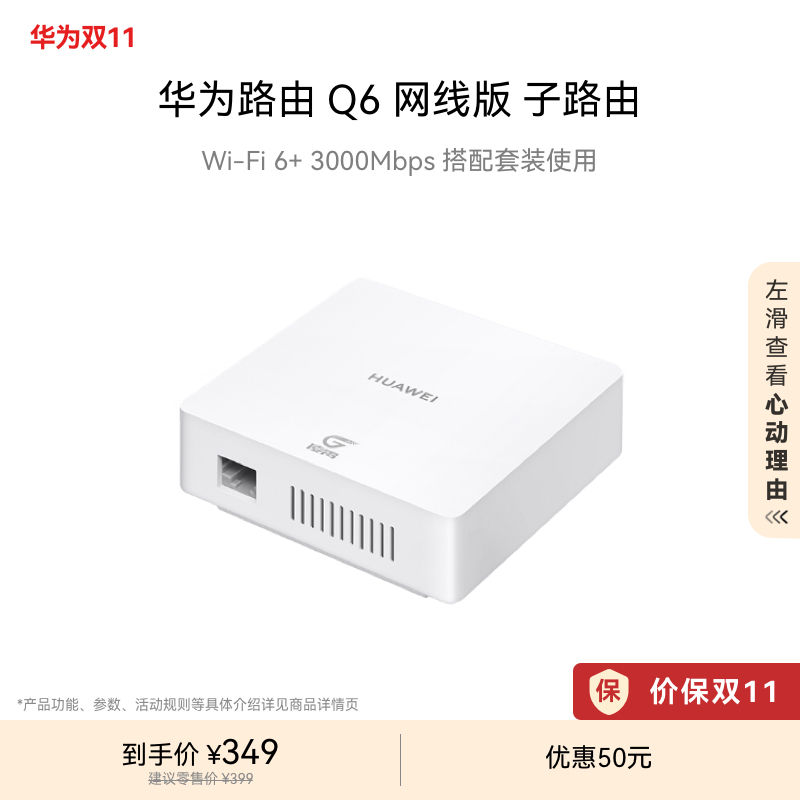无线路由器与有线路由器的区别及选择建议
观想沮
2024-10-17 13:30:47
0次
无线路由器与有线路由器的区别及选择建议
一、区别
无线路由器与有线路由器是网络设备中两种不同的类型,它们各自具有独特的特点和功能。以下为它们之间的主要区别:
1. 连接方式:有线路由器需要通过网线进行连接,而无线路由器则通过电磁波进行无线连接。
2. 安装便利性:无线路由器无需布线,安装更加便利,适合于家庭或办公室等需要灵活调整网络布局的场景。有线路由器则需要根据网络布局预先布设网线,安装较为复杂。
3. 信号覆盖范围:无线路由器的信号覆盖范围较大,但受到墙壁、金属物体等阻碍时信号可能会受到影响。有线路由器则没有这个问题,因为其信号通过网线传输。
4. 稳定性与速度:在信号稳定性和传输速度方面,有线路由器通常优于无线路由器,因为无线连接可能会受到电磁干扰和其他因素的影响。
5. 设备兼容性:无线路由器需要与支持无线网络的设备配合使用,而有线路由器则不受此限制,可以与任何网络设备连接。
二、选择建议 根据上述区别,选择无线路由器还是有线路由器时,需要考虑以下因素: 1. 使用场景:如果需要在家庭或办公室等需要灵活调整网络布局的场景中使用,且希望避免布线的麻烦,那么无线路由器是更好的选择。如果网络布局已经确定且对网络稳定性要求较高,那么有线路由器可能更合适。 2. 设备支持:如果家中或办公室的设备大多支持无线网络,那么选择无线路由器更为方便。如果仍有部分设备需要连接有线网络,那么可以考虑在主要区域布置无线路由器,同时在需要的地方使用有线路由器或网关。 3. 预算考虑:无线路由器通常比有线路由器价格稍高,因为它们需要支持无线通信技术。在购买时需要根据自己的预算进行权衡。 4. 维护与升级:有线路由器在维护和升级方面可能更为简单,因为无需考虑信号覆盖和连接问题。而无线路由器则需要定期检查信号覆盖和设备连接情况,以确保网络稳定运行。 Wireless Routers vs Wired Routers: Differences and Selection Suggestions I. Differences Wireless routers and wired routers are two different types of network devices with unique characteristics and functions. The main differences are as follows: 1. Connection Method: Wired routers rely on network cables for connection, while wireless routers use electromagnetic waves for wireless connection. 2. Installation Convenience: Wireless routers are easier to install without the need for wiring, making them suitable for scenarios that require flexible network layout adjustments in homes or offices. Wired routers, on the other hand, require pre-installed network cables based on the network layout, making the installation process more complex. 3. Signal Coverage: Wireless routers have a wider signal coverage area, but the signal may be affected by obstacles such as walls and metal objects. Wired routers do not have this issue as their signal is transmitted through network cables. 4. Stability and Speed: In terms of signal stability and transmission speed, wired routers usually perform better than wireless routers due to the potential for electromagnetic interference and other factors affecting wireless connections. 5. Device Compatibility: Wireless routers require the use of devices that support wireless networks, while wired routers are not limited by this and can connect with any network device.II. Selection Suggestions
Based on the differences mentioned above, when choosing between a wireless router and a wired router, consider the following factors: 1. Usage Scenario: If you need flexibility in adjusting the network layout in a home or office environment and want to avoid the hassle of wiring, a wireless router is a better choice. If the network layout is already established and you require high network stability, a wired router may be more suitable. 2. Device Support: If most of the devices in your home or office support wireless networks, choosing a wireless router is more convenient. If some devices still require a wired connection, consider deploying a wireless router in key areas while using wired routers or gateways in areas where needed. 3. Budget Consideration: Wireless routers typically cost slightly more than wired routers due to their support for wireless communication technologies. Balance your purchase based on your budgetary considerations. 4. Maintenance and Upgrade: Wired routers may be simpler in terms of maintenance and upgrade as there is no need to consider signal coverage and connection issues. On the other hand, wireless routers require regular checking of signal coverage and device connections to ensure stable network operation.相关内容
热门资讯
路由器的进化史:从有线到无线,...
路由器进化史:从有线到无线,再到智能路由器,科技发展推动了路由器的变革。这种变化为人们提供更便捷、高...
路由器市场大解析:2023年热...
路由器市场解析:2023年热门型号比较,竞争激烈。各大品牌如华为、小米、TP-Link和苹果推出各有...
"家用与商用路由器的区别及选择...
本文介绍了家用与商用路由器的区别,并提供了选择建议。家用路由器适合家庭用户,需关注稳定性和易用性;商...
路由器故障排查与解决:常见问题...
本文介绍了路由器常见问题及处理方法,包括无法联网、信号弱、无法登录管理界面、掉线及设备连接限制等问题...
"路由器技术解析:如何提升网络...
本文介绍了提升网络速度与稳定性的技术手段,包括硬件升级、信道优化、智能QoS等措施,通过增强天线信号...
路由器技术发展趋势与未来展望
摘要:
本文探讨了路由器技术的发展趋势与未来展望。随着硬件升级、软件定义网络和网络功能虚拟化、安全...
高速稳定:路由器技术解析与性能...
摘要:
本文详细解析了路由器技术,包括硬件和软件技术,并对不同路由器的传输速度、稳定性和信号性能进...
路由器使用技巧大放送:提升网络...
本文分享了提升路由器网络速度与稳定性的技巧,包括定期重启路由器、调整信道与频段、优化设备位置、使用更...
全面解析不同类型路由器的优缺点
本文解析了不同类型路由器的优缺点,包括家庭路由器、企业级路由器和无线路由器。每种路由器都有其特定应用...
"深度解析:路由器的关键参数及...
摘要:
本文深入解析了路由器的关键参数和功能,包括无线标准、频段、处理器和内存、端口数量和类型等,...


